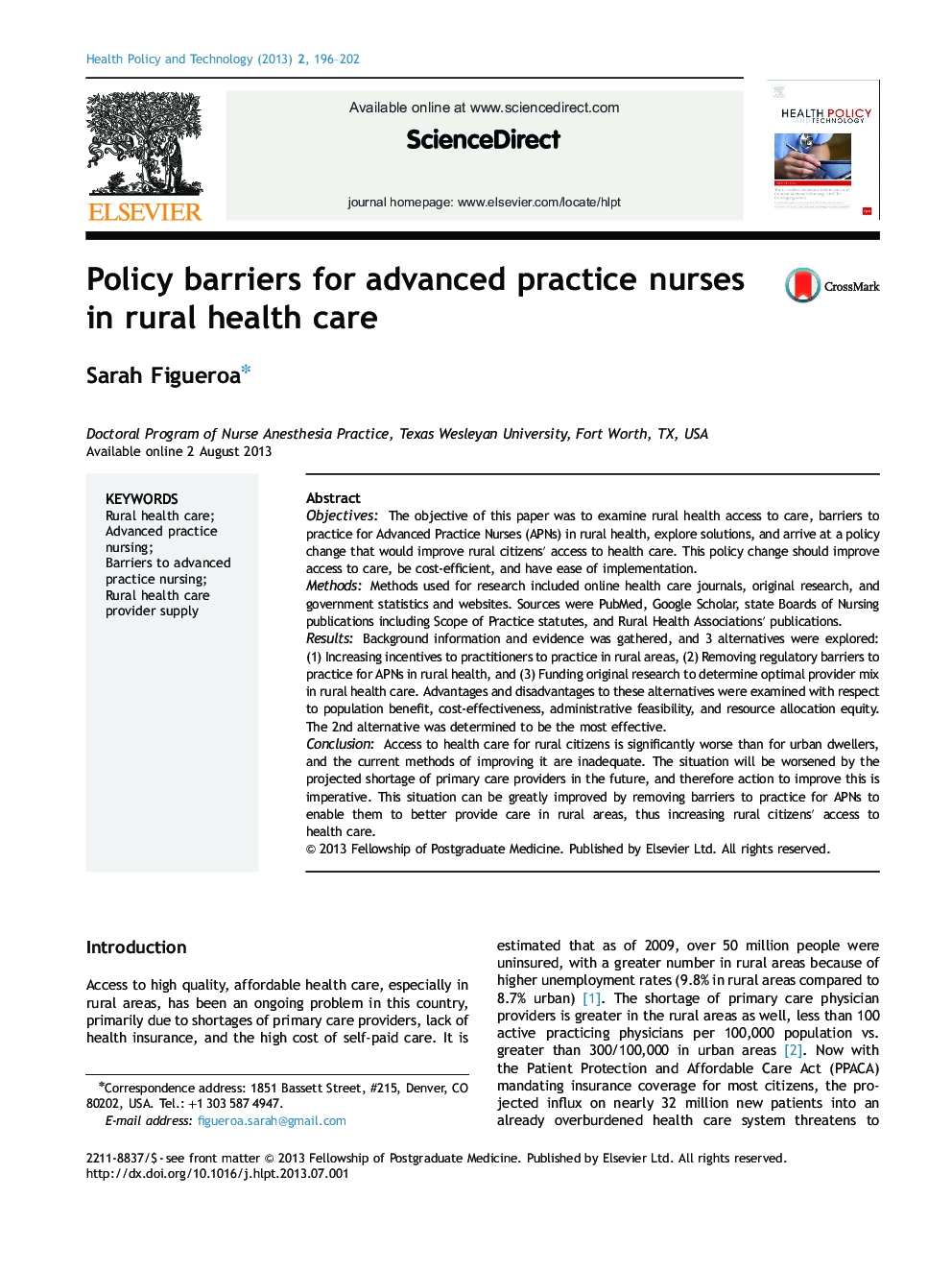| Article ID | Journal | Published Year | Pages | File Type |
|---|---|---|---|---|
| 3327311 | Health Policy and Technology | 2013 | 7 Pages |
•This paper examines healthcare policies affecting rural access to care and regulatory barriers to practice for Advanced Practice Nurses (APNs).•Increasing shortages of rural health care providers are worsening rural access to care.•Healthcare policy changes are necessary for equitable health care for rural citizens.•Three policy alternatives are examined with a decision matrix.•Removing regulatory barriers for APNs is the most effective policy change to increase providers and improve rural access to care.
ObjectivesThe objective of this paper was to examine rural health access to care, barriers to practice for Advanced Practice Nurses (APNs) in rural health, explore solutions, and arrive at a policy change that would improve rural citizens′ access to health care. This policy change should improve access to care, be cost-efficient, and have ease of implementation.MethodsMethods used for research included online health care journals, original research, and government statistics and websites. Sources were PubMed, Google Scholar, state Boards of Nursing publications including Scope of Practice statutes, and Rural Health Associations′ publications.ResultsBackground information and evidence was gathered, and 3 alternatives were explored: (1) Increasing incentives to practitioners to practice in rural areas, (2) Removing regulatory barriers to practice for APNs in rural health, and (3) Funding original research to determine optimal provider mix in rural health care. Advantages and disadvantages to these alternatives were examined with respect to population benefit, cost-effectiveness, administrative feasibility, and resource allocation equity. The 2nd alternative was determined to be the most effective.ConclusionAccess to health care for rural citizens is significantly worse than for urban dwellers, and the current methods of improving it are inadequate. The situation will be worsened by the projected shortage of primary care providers in the future, and therefore action to improve this is imperative. This situation can be greatly improved by removing barriers to practice for APNs to enable them to better provide care in rural areas, thus increasing rural citizens′ access to health care.
